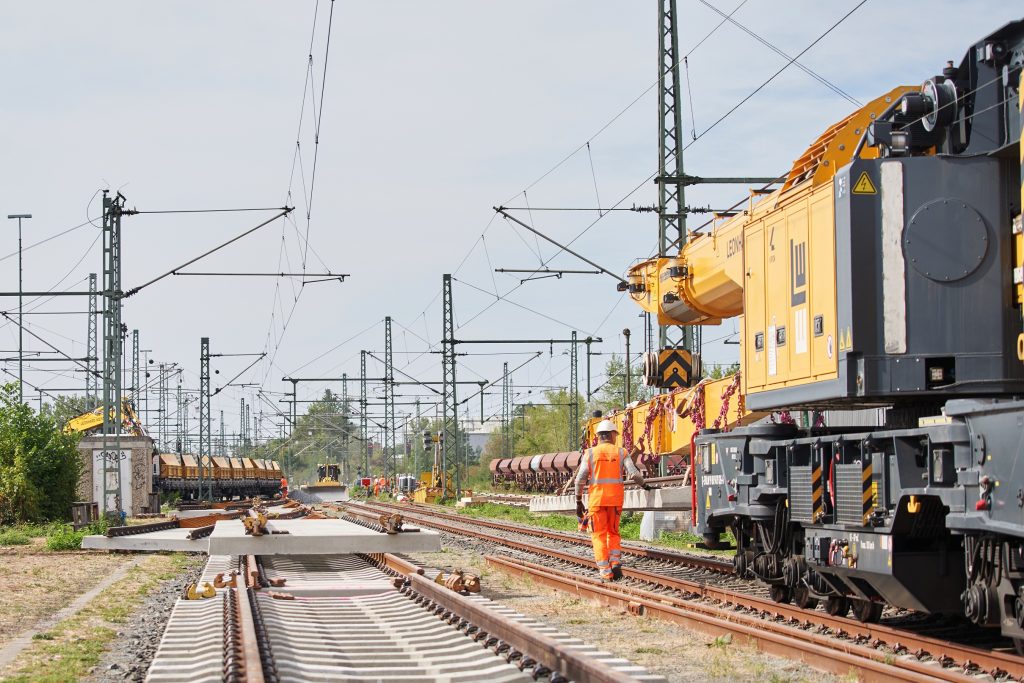
Germany’s Federal Ministry for Digital and Transport is pushing ahead with the timetable-based construction and expansion of rail routes and is fitting this move more closely with the renovation and modernisation of the existing network and digitisation under the umbrella of Deutschlandtakt – the nationwide integrated clockface timetable.
The goal is to deliver efficient and reliable railway infrastructure providing better local connections and regular interval timetable for passenger and freight transport services through a holistic planning approach.
Michael Theurer, the new Federal Government Commissioner for Rail Transport, has presented new concrete improvements that the Deutschlandtakt is intended to bring to the rails in the states of Bavaria and Thuringia.
“The conception phase of the Deutschlandtakt has been completed. Now it’s time to put it into practice. With the start of further project planning, such as the expansion route Augsburg – Donauwörth and other measures in the Erfurt hub, Deutschlandtakt is picking up speed. In this way, we create the conditions for getting more and better rail sector with high capacity, quality and customer orientation concept,” Michael Theurer said.
“The Deutschlandtakt is the key to attractive and climate-friendly rail mobility. We want the railways to provide a high-performance, modern and reliable infrastructure and the right timetable. Especially in the state of Bavaria, we need good frequency, functioning connections and thus an attractive offer for rural areas,” Bavarian Minister of Transport Christian Bernreiter said.
The Government has launched important rail projects worth EUR 3.9 billion which include:
- The expansion of Augsburg – Donauwörth railway line
- The expansion of Ausbaustrecke Burgsinn – Gemünden – Würzburg – Nürnberg rail route
- The expansion and construction of a new section on Hanau – Würzburg/Fulda – Erfurt and a four-track expansion on Hanau – Aschaffenburg and the construction of a new line between Heigenbrücken and Nantenbach
- Munich – Lindau – border D/A upgrade and the construction of additional passing tracks
- Additional pedestrian crossing Munich Hauptbahnhof
The Deutschlandtakt is a comprehensive plan to align the train timetable with the infrastructure projects to deliver more frequent and expanded rail services, better transfer points and a reliable network which provides increased capacity. With this plan, Germany intends to create a better rail network with easier and timely connected services, which will encourage people to switch to rail instead their cars.
“The Deutschlandtakt is the key rail sector objective that has been developed in cooperation with the entire industry. We will continue to pursue it, because it will lead us to what we have to achieve: on time, reliable, green, high-quality and attractive services for travellers and industry,” the Federal Minister for Digital and Transport, Volker Wissing said at the 4th Railway Summit held at Allianz Forum in Berlin in September.
The Deutschlandtakt, – the key for the development and evolution of the rail network, is implemented in various phases. The concept of potential output for the second phase unveiled in September affects the timetables for the years 2026 to 2030. It outlines the intermediate target: half-hourly intervals for long-distance services between the major cities, resilient systemised train paths for rail freight and well-developed hubs from which the Deutschlandtakt can spread into less populated areas and lead to attractive local public transport services.
The plans cover rehabilitation measures on the high-capacity corridors, the implementation of rail digitalisation programme, electrification, maintenance and repair well as upgrading and the construction of new lines and sections.
The digitalisation of railways plays an important role to create a better and connected rail system and it is expected that the introduction of the new technologies will provide a 30% higher capacity on heavily used routes. The installatio of the ETCS and the digital interlocking technology (DSTW) will benefit EUR 7 billion federal funding including through the Digital Rail for Germany programme. The long-term goal is to introduce ETCS nationwide before 2040.
Share on:



